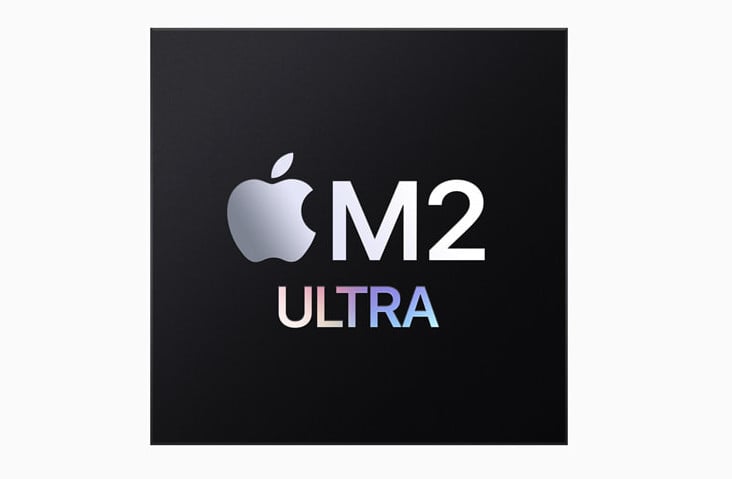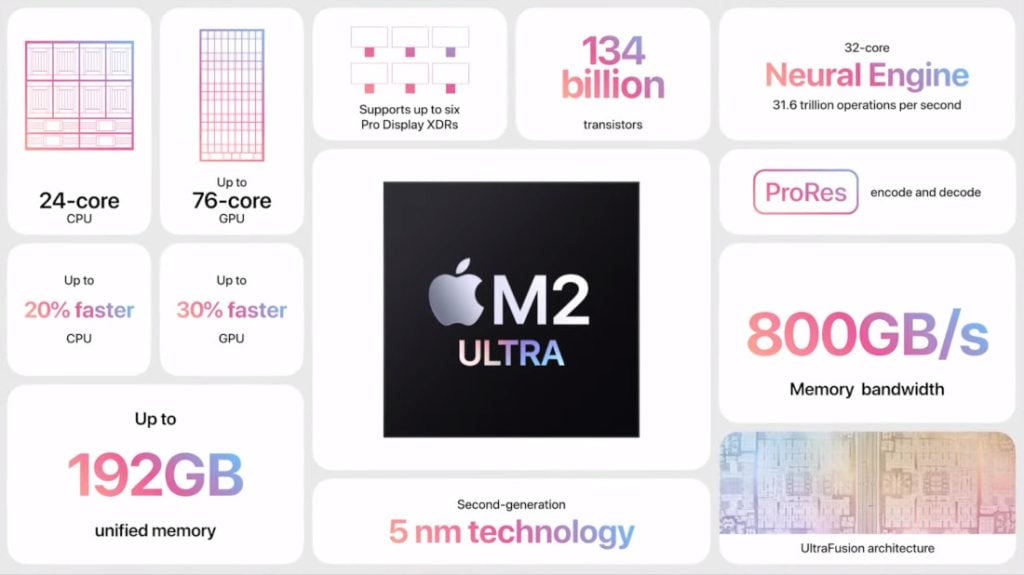During its highly anticipated WWDC 2023 event, Apple showcased its newest addition to the M2 series of SoCs—the M2 Ultra. This cutting-edge chipset, manufactured using a second-generation 5-nanometer process, incorporates Apple’s revolutionary UltraFusion technology. By joining two M2 Max chips, the M2 Ultra achieves an impressive doubling of performance.

Unprecedented Speed and Efficiency: Dive into the Specs of Apple’s M2 Ultra Chip
The M2 Ultra boasts an astounding 134 billion transistors, surpassing its predecessor, the M1 Ultra, by 20 billion. Apple’s unified memory architecture takes a giant leap forward, supporting a remarkable capacity of up to 192GB, a significant 50% increase compared to the M1 Ultra. Additionally, it offers a remarkable memory bandwidth of 800GB/s, double that of the M2 Max.
One of the standout features of the M2 Ultra is its 24-Core CPU. This includes 16 next-generation high-performance cores and eight next-generation high-efficiency cores, resulting in a 20% improvement over the M1 Ultra. The GPU on the M2 Ultra is a true powerhouse, providing a 30% increase in performance and the option to configure it with either 60 or 76 cores. Moreover, the Neural Engine has been enhanced with 32 cores, delivering a staggering 31.6 trillion operations per second—a 40% improvement over its predecessor.

Apple has also enhanced the media engine on the M2 Ultra, equipping it with double the capabilities found in the M2 Max. It now includes dedicated, hardware-enabled H.264, HEVC, and ProRes encode and decode capabilities, enabling the M2 Ultra to handle up to 22 streams of 8K ProRes 422 video playback.
Impressively, the M2 Ultra’s display engine can support up to six Pro Display XDRs, offering users the ability to drive more than 100 million pixels. Apple has emphasized its commitment to security by integrating the latest Secure Enclave, along with hardware-verified secure boot and runtime anti-exploitation technologies, ensuring best-in-class security for users.
The M2 Ultra chipset will power the forthcoming Mac Pro and Mac Studio, both set to launch this month. Apple proudly announced that the Mac transition to Apple Silicon is now complete, marking a significant milestone for the company.
RELATED:
- Apple launches the 15-inch Macbook Air with M2 processor
- A Significant Shift in Loyalty: Americans Now Prefer Samsung to Apple
- Apple to Drop “Hey Siri” Trigger Phrase at WWDC 2023
- Realme GT Neo5 vs POCO F5 Pro: Specs Comparison







